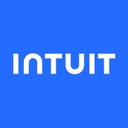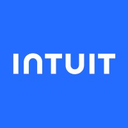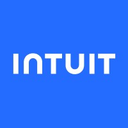QuickBooks vs Float (2025 Comparison)

QuickBooks offers comprehensive accounting features and robust financial reporting, making it a versatile solution for businesses looking to manage their finances efficiently.
- Comprehensive accounting features
- Wide range of integrations
- Robust financial reporting
- Steep learning curve
- Complex interface
Free plan?
YesStarting price
$17.50 per month
Float provides excellent cash flow forecasting and a user-friendly interface, making it an ideal choice for businesses focused on cash flow management.
- User-friendly interface
- Excellent cash flow forecasting
- Seamless integration with accounting software
- Limited accounting features
- No payroll management
Free plan?
YesStarting price
$59 per monthWhat is QuickBooks?
QuickBooks is a comprehensive accounting software designed to help businesses manage their finances efficiently. It offers features like invoicing, expense tracking, payroll management, and financial reporting. With its user-friendly interface, QuickBooks simplifies complex accounting tasks, making it easier for businesses to stay on top of their financial health. Whether you're a small business owner or a freelancer, QuickBooks provides the tools you need to streamline your financial operations and make informed decisions.
What is Float?
Float is a cash flow forecasting software that helps businesses manage their finances by providing real-time insights into their cash flow. It integrates seamlessly with accounting software like QuickBooks, allowing users to create accurate cash flow forecasts and track their financial performance. Float's intuitive interface and powerful features make it easy for businesses to plan for the future, identify potential cash flow issues, and make informed financial decisions. Whether you're a small business owner or a financial manager, Float provides the tools you need to stay on top of your cash flow and ensure financial stability.
Pros and Cons of QuickBooks vs Float

Pros & Cons of QuickBooks
- QuickBooks offers a wide range of accounting features, including invoicing, expense tracking, payroll management, and financial reporting. It is a comprehensive solution for businesses looking to manage their finances efficiently.
- QuickBooks supports a wide range of integrations with other business tools, making it easy to connect with your existing systems and streamline your operations.
- QuickBooks offers robust financial reporting features, allowing you to generate detailed reports on your business's financial performance and make informed decisions.
- QuickBooks has a steep learning curve due to its extensive features, which may require some time and effort to master, especially for users with limited accounting knowledge.
- QuickBooks has a complex interface due to its wide range of features, which may be overwhelming for some users, especially those new to accounting software.

Pros & Cons of Float
- Float offers a user-friendly interface that is easy to navigate, making it accessible for users with limited accounting knowledge and experience.
- Float excels in cash flow forecasting, providing real-time insights and accurate forecasts to help businesses manage their finances effectively.
- Float integrates seamlessly with popular accounting software like QuickBooks and Xero, enhancing its forecasting capabilities and providing a comprehensive financial management solution.
- Float focuses primarily on cash flow forecasting and management, offering limited accounting features compared to more comprehensive solutions like QuickBooks.
- Float does not offer payroll management features, which may be a limitation for businesses with employees looking for an all-in-one financial management solution.
QuickBooks vs Float: At A Glance
Value to Price
QuickBooks offers a robust set of features at a competitive price, making it a great value for businesses looking for comprehensive accounting solutions. Its extensive functionality justifies the cost, especially for small to medium-sized businesses. Float, while slightly less expensive, provides excellent value for businesses focused on cash flow management. If you're looking for a tool that offers a wide range of accounting features, QuickBooks is the better choice.
Ease of Use
Float shines in terms of ease of use with its intuitive interface and straightforward setup process. It is designed to be user-friendly, even for those with limited accounting knowledge. QuickBooks, while also user-friendly, has a steeper learning curve due to its extensive features. If you prioritize ease of use, Float is the better option.
Functionality
QuickBooks excels in functionality, offering a wide range of features including invoicing, payroll, and financial reporting. It is a comprehensive solution for businesses looking for an all-in-one accounting tool. Float, on the other hand, focuses on cash flow forecasting and management, providing specialized features in this area. If you need a tool with extensive accounting functionality, QuickBooks is the better choice.
Scalability
Both QuickBooks and Float offer scalability, but QuickBooks has the edge with its ability to support growing businesses with more complex accounting needs. It can handle larger volumes of transactions and offers advanced features for larger businesses. Float is ideal for small to medium-sized businesses looking for scalable cash flow management solutions. If scalability is a priority, QuickBooks is the better option.
Integrations
QuickBooks offers a wide range of integrations with other business tools, making it easy to connect with your existing systems. It supports integrations with popular tools like PayPal, Shopify, and more. Float also offers integrations, primarily with accounting software like QuickBooks and Xero. If you need extensive integration options, QuickBooks is the better choice.
Customer Support
QuickBooks provides reliable customer support with various channels including phone, chat, and email. It also offers a comprehensive knowledge base and community forums. Float offers good customer support, primarily through email and chat. If you value extensive customer support options, QuickBooks is the better choice.
Security
Both QuickBooks and Float prioritize security, offering features like data encryption and secure access controls. QuickBooks has a slight edge with its robust security measures and compliance with industry standards. If security is a top concern, QuickBooks is the better choice.
Overall Rating
QuickBooks scores higher overall due to its comprehensive features, scalability, and extensive integrations. It is a versatile tool suitable for a wide range of businesses. Float, while slightly lower in overall rating, excels in ease of use and cash flow management. If you need a comprehensive accounting solution, QuickBooks is the better choice.
QuickBooks vs Float: A Detailed Breakdown of Key Features
Invoicing
QuickBooks offers a robust invoicing feature that allows you to create and send professional invoices with ease. It supports customization, recurring invoices, and payment reminders, making it a comprehensive solution for managing your billing process. Float, while offering basic invoicing capabilities, focuses more on cash flow management. If invoicing is a critical aspect of your business, QuickBooks is the better choice.
Expense Tracking
QuickBooks excels in expense tracking, providing tools to categorize expenses, attach receipts, and generate detailed reports. It simplifies the process of managing and monitoring your business expenses. Float offers basic expense tracking features, but its primary focus is on cash flow forecasting. If you need advanced expense tracking capabilities, QuickBooks is the better option.
Payroll Management
QuickBooks offers a comprehensive payroll management feature that automates payroll processing, tax calculations, and employee payments. It is a valuable tool for businesses with employees. Float does not offer payroll management, as its focus is on cash flow forecasting. If payroll management is a priority, QuickBooks is the better choice.
Cash Flow Forecasting
Float excels in cash flow forecasting, providing real-time insights and accurate forecasts to help you manage your finances effectively. It integrates seamlessly with accounting software like QuickBooks, enhancing its forecasting capabilities. QuickBooks also offers cash flow forecasting, but Float's specialized focus makes it the better choice for businesses prioritizing cash flow management.
Financial Reporting
QuickBooks offers a wide range of financial reporting features, allowing you to generate detailed reports on your business's financial performance. It provides insights into profitability, cash flow, and more. Float offers basic financial reporting, but its primary focus is on cash flow forecasting. If you need comprehensive financial reporting, QuickBooks is the better option.
User Interface
Float offers an intuitive and user-friendly interface, making it easy for users to navigate and access the features they need. QuickBooks, while also user-friendly, has a more complex interface due to its extensive features. If you prioritize a simple and intuitive user interface, Float is the better choice.
Pricing Comparison of QuickBooks and Float
We’ve compiled the pricing tables and highlighted the key features of both QuickBooks and Float to aid in your decision-making process. Let’s explore what each platform has to offer.

QuickBooks Pricing Plans
- Automate bookkeeping tasks to save time and reduce errors.
- Capture and organize receipts for easy tracking and reporting.
- Track mileage to maximize tax deductions and reimbursements.
- Generate general reports to gain insights into business performance.
- Handle multiple currencies for international transactions.
- Connect up to 3 sales channels for seamless integration.
- Generate enhanced reports for deeper business insights.
- Includes 3 users for collaborative work environment.
- Analyze project profitability to optimize resource allocation.
- Connect all sales channels for comprehensive sales tracking.
- Includes 5 users for expanded team collaboration.
- Generate comprehensive reports for detailed financial analysis.
- Sync data with Excel for advanced data manipulation.
- Manage up to 25 users for large team collaboration.
- Access 24/7 support and training for continuous assistance.
- Utilize revenue recognition for accurate financial reporting.

Float Pricing Plans
- Track and predict cash across your project pipeline.
- Predict your company’s future cash reserves and ‘death date’.
- Track and explore your previous projects and cash activity.
- Add, combine and compare the business impact of each scenario.
- Track each active project with real financial transactions.
- Calculate your total project revenue based on finalized transactions.
- Float instantly reports how confident you can be in your decision making.
- Budget quickly with automatically suggested fixed costs.
- Get granular forecasts for your day-to-day cash position.
- Accurately calculate fully loaded costs of new employees.
- Compare a scenario to your business reality and establish any deviation.
- Export any scenario in CSV or PDF format.
Our Rating Methodology
We thoroughly test each accounting software, evaluating key features like functionality, scalability, and integrations. We also analyze user reviews to ensure our recommendations fit your needs. Each of the seven evaluation factors is weighted by importance to provide an accurate final rating, helping you avoid poor-quality tools and make informed decisions.
QuickBooks or Float: Which One Matches Your Business Needs?
Choose QuickBooks If You Need ...
- Comprehensive accounting solution
If you need a comprehensive accounting solution with features like invoicing, expense tracking, and payroll management, QuickBooks is the better choice. It offers a wide range of accounting features to help you manage your finances efficiently.
- Extensive integrations
If you require extensive integrations with other business tools, QuickBooks is the better option. It supports a wide range of integrations, making it easy to connect with your existing systems and streamline your operations.
Choose Float If You Need ...
- Focus on cash flow management
If you are focused on cash flow management and need a tool that excels in cash flow forecasting, Float is the better choice. It provides real-time insights and accurate forecasts to help you manage your finances effectively.
- User-friendly interface
If you prioritize a user-friendly interface and ease of use, Float is the better option. It offers an intuitive interface that is easy to navigate, making it accessible for users with limited accounting knowledge.
Frequently Asked Questions
 Which tool is better for small businesses?
Which tool is better for small businesses?
 Can Float integrate with QuickBooks?
Can Float integrate with QuickBooks?
 Does QuickBooks offer payroll management?
Does QuickBooks offer payroll management?
 Is Float suitable for large businesses?
Is Float suitable for large businesses?
 Which tool offers better customer support?
Which tool offers better customer support?
 Does Float offer financial reporting features?
Does Float offer financial reporting features?

Martin Lunendonk
Martin Lunendonk is a senior tech writer specializing in website builders, web hosting, and ecommerce platforms. With a background in finance, accounting, and philosophy, he has founded multiple tech startups and worked in medium to large tech companies and investment banking, bringing deep expertise and reliable insights to his software reviews.



